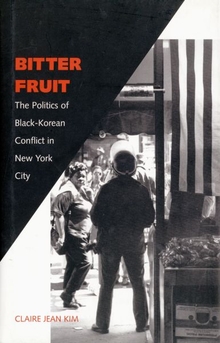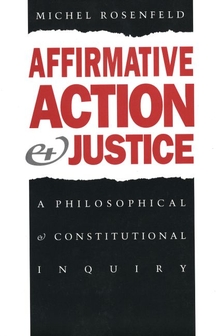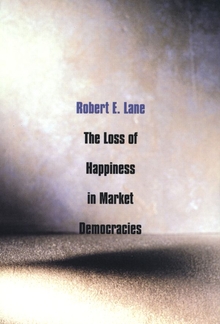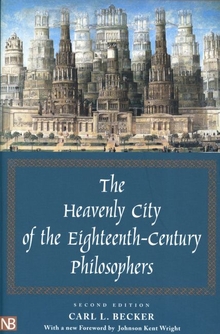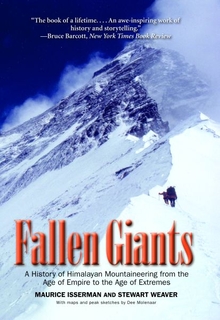Bitter Fruit
WARNING
You are viewing an older version of the Yalebooks website. Please visit out new website with more updated information and a better user experience: https://www.yalebooks.com
The Politics of Black-Korean Conflict in New York City
Claire Jean Kim
Conflict between Blacks and Koreans has increased in American cities during the past two decades. In this timely book, Claire Jean Kim investigates the most prolonged episode of such conflict—the Flatbush Boycott of 1990, when Black nationalist and Haitian activists led a boycott and picketing campaign against two Korean-owned produce stores in Flatbush, Brooklyn. Drawing on years of in-depth interviewing, Kim helps us understand why Black activists engage in such collective actions and why other parties respond as they do.
Kim rejects conventional wisdom that Black-Korean conflict constitutes racial scapegoating, the irrational venting of Black rage on Korean merchants. She argues instead that it is in response to White dominance in American society, which generates a distinct racial order that encourages conflict among different groups, provokes racial resistance, and delegitimates and silences such resistance. Kim asserts that the Flatbush Boycott was part of a larger resurgence of Black Power activism in New York City, that Haitian immigrants mobilized out of overlapping transnational and racial identities, and that Korean Americans responded by launching a countermovement seeking to restore the status quo. Racial protests are inevitable, she says, as long as conditions of racial injustice prevail.
Kim rejects conventional wisdom that Black-Korean conflict constitutes racial scapegoating, the irrational venting of Black rage on Korean merchants. She argues instead that it is in response to White dominance in American society, which generates a distinct racial order that encourages conflict among different groups, provokes racial resistance, and delegitimates and silences such resistance. Kim asserts that the Flatbush Boycott was part of a larger resurgence of Black Power activism in New York City, that Haitian immigrants mobilized out of overlapping transnational and racial identities, and that Korean Americans responded by launching a countermovement seeking to restore the status quo. Racial protests are inevitable, she says, as long as conditions of racial injustice prevail.
Claire Jean Kim is assistant professor in the Department of Political Science and the Asian American Studies program at the University off California, Irvine.
“Kim richly documents an important set of racial conflicts and social movements with a unique flair for theoretical insights.”—Joe R. Feagin, University of Florida
“The book deserves a wide audience. It bridges theorizing on race/ethnicity and social movements, offers a too-rare picture of post-1965 black protest, and joins a rich empirical analysis of interethnic conflict with an ambitious and provocative argument.”—Francesca Polletta, American Journal of Sociology
“In the 1990s, the specter of the Black-Korean conflict haunted the megalopolises of the United States. . . . Bitter Fruit superbly limns a major episode from the specter. The boycott of the Family Red Apple store. . . . Kim deftly delineates the dynamics of the boycott and in so doing offers nuanced narratives of the complex panoply of actors, voices, interests, and motivations. In terms of ethnographic richness and depth, this book may well become the definitive study on the Red Apple boycott. . . . Bitter Fruit—written with verve and intelligence--signals the debut of a very promising scholar.”—The Journal of Asian Studies
"Sophisticated, provocative, and original, Bitter Fruit explodes the inadequacy of the racial scapegoating theory in explaining Black-Korean conflict, and refocuses us on the importance of racial power, racial ordering, and resistance. A must read for all those interested in contemporary social movements, American politics, and race relations in the United States."—Yen Le Espiritu, author of Home Bound: Filipino American Lives Across Cultures, Communities, and Countries Please feel free to edit
“Bitter Fruit is a brilliant book. Claire Jean Kim’s bracing analysis of Black-Korean conflict moves beyond surface appearances to delineate in exquisite detail how hidden political, social, and economic inequalities generate inter-ethnic conflict between aggrieved communities of color. Bitter Fruit is both a richly detailed and dramatic history of one particular protest movement as well as a searing critique of existing scholarship on social movements, urban geography, and racial stratification. Kim’s creative and complex work makes visible previously occluded aspects of racialized privilege and power, while pointing to political solutions aimed at the real causes of racial antagonisms, not just their symptoms and effects.”—George Lipsitz, author of The Possessive Investment in Whiteness
“The book deserves a wide audience. It bridges theorizing on race/ethnicity and social movements, offers a too-rare picture of post-1965 black protest, and joins a rich empirical analysis of interethnic conflict with an ambitious and provocative argument.”—Francesca Polletta, American Journal of Sociology
“In the 1990s, the specter of the Black-Korean conflict haunted the megalopolises of the United States. . . . Bitter Fruit superbly limns a major episode from the specter. The boycott of the Family Red Apple store. . . . Kim deftly delineates the dynamics of the boycott and in so doing offers nuanced narratives of the complex panoply of actors, voices, interests, and motivations. In terms of ethnographic richness and depth, this book may well become the definitive study on the Red Apple boycott. . . . Bitter Fruit—written with verve and intelligence--signals the debut of a very promising scholar.”—The Journal of Asian Studies
"Sophisticated, provocative, and original, Bitter Fruit explodes the inadequacy of the racial scapegoating theory in explaining Black-Korean conflict, and refocuses us on the importance of racial power, racial ordering, and resistance. A must read for all those interested in contemporary social movements, American politics, and race relations in the United States."—Yen Le Espiritu, author of Home Bound: Filipino American Lives Across Cultures, Communities, and Countries Please feel free to edit
“Bitter Fruit is a brilliant book. Claire Jean Kim’s bracing analysis of Black-Korean conflict moves beyond surface appearances to delineate in exquisite detail how hidden political, social, and economic inequalities generate inter-ethnic conflict between aggrieved communities of color. Bitter Fruit is both a richly detailed and dramatic history of one particular protest movement as well as a searing critique of existing scholarship on social movements, urban geography, and racial stratification. Kim’s creative and complex work makes visible previously occluded aspects of racialized privilege and power, while pointing to political solutions aimed at the real causes of racial antagonisms, not just their symptoms and effects.”—George Lipsitz, author of The Possessive Investment in Whiteness
"How will new immigrants of color affect and be affected by the practices and politics of racial inequality in the U.S.? Few questions will be more central to American life in the 21st century, and few questions are now less understood. Claire Kim’s vivid exploration of one searing Black-Korean clash, the bitter Red Apple Boycott in Brooklyn in 1990, movingly illuminates the harsh political and economic pressures that drive individuals and communities into seemingly irrational, racially-charged conflicts. And if Kim provides no easy answers as to how Americans can prevent those conflicts from reinforcing rather than diminishing the racial inequities that still mar American life, she succeeds in exploding widely endorsed easy answers that are in the end part of the problem, not part of any solution."—Rogers M. Smith, Alfred Cowles Professor of Government, Yale University
“One of Kim’s strengths . . . is her careful consideration, through extensive interviewing, of the voices of all the players…and her clearheaded recognition of their differential access to power and resources. . . . Kim’s Bitter Fruit sets an incisive new pattern for our understanding of class in multiracial politics as we live through the bitter years ahead.”—Micaela di Leonardo, The Nation
“An exceptionally accomplished, original, and lucid book that will be pivotal in future debates in the field of social movement theory.”—James C. Scott, Yale University
Winner of the American Political Science Association’s 2001 Ralph Bunche Award for the best scholarly work in political science
Winner of the 2000 Best Book on Racial Power and Social Movement Theory Award of the American Political Science Association section on Race, Ethnicity, and Politics
ISBN: 9780300093308
Publication Date: February 8, 2003
Publication Date: February 8, 2003
320 pages, 6 1/8 x 9 1/4

